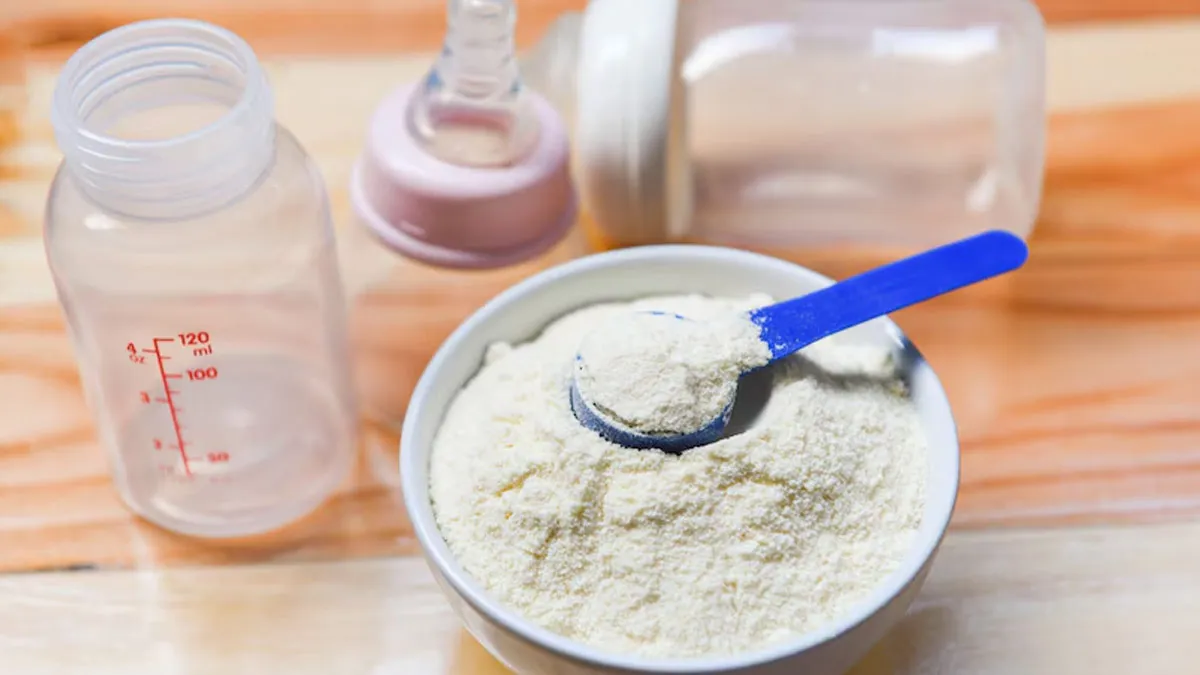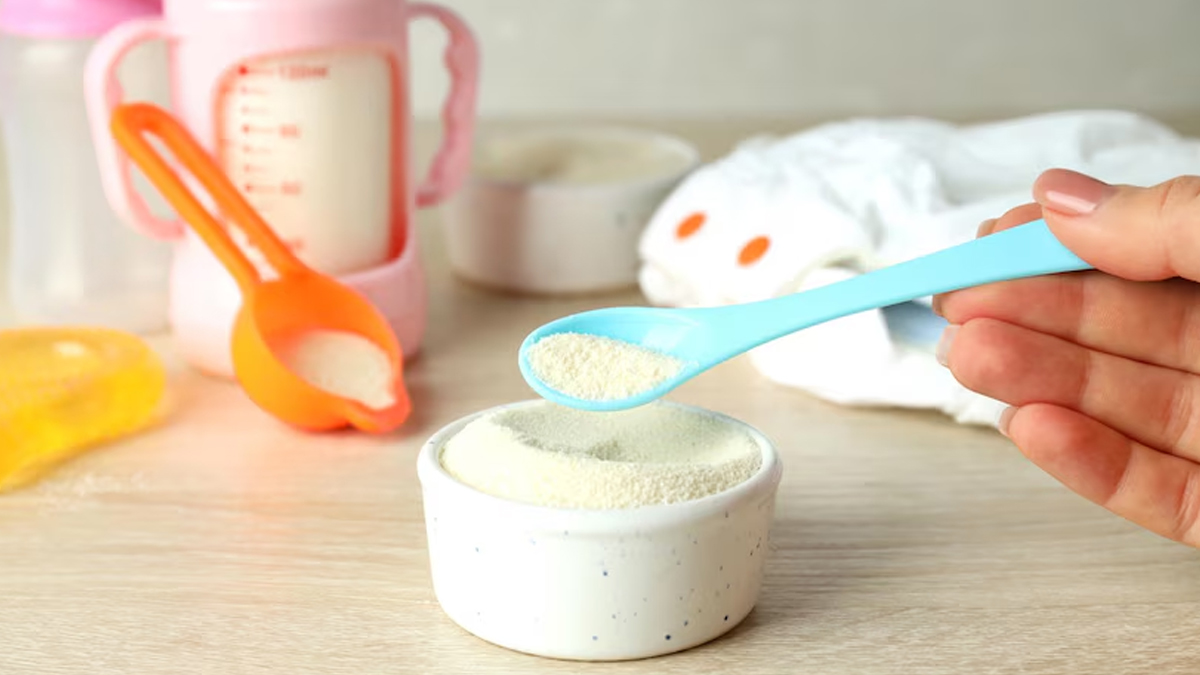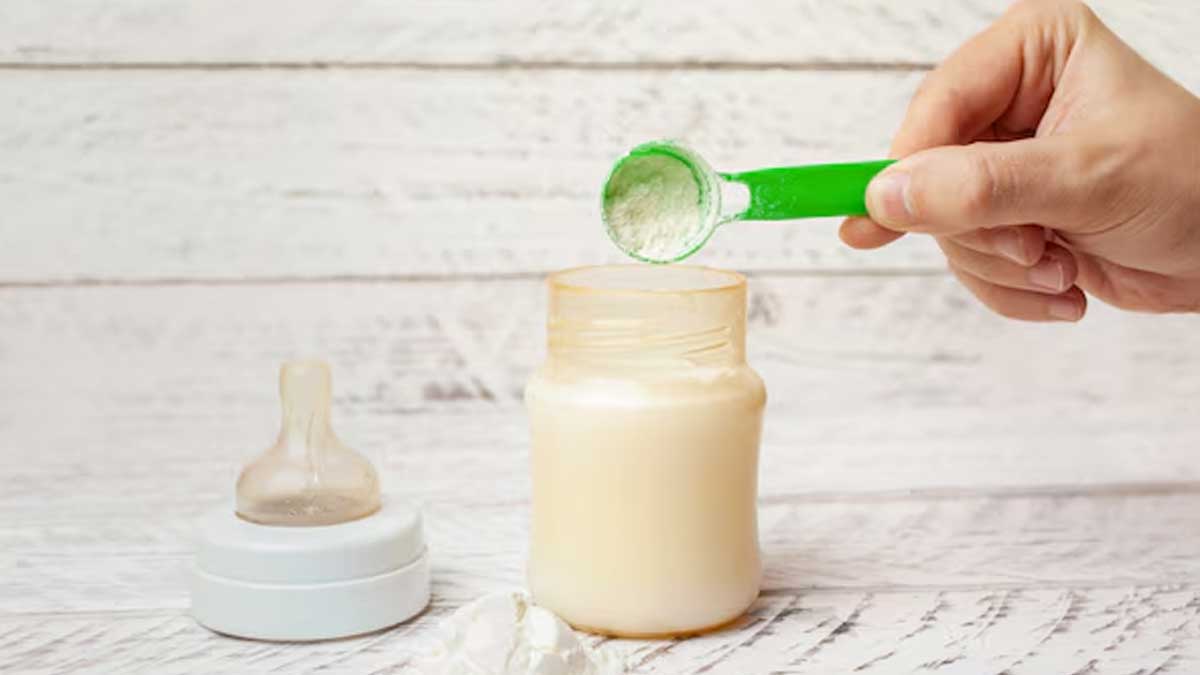
Powdered milk has been a convenient alternative to fresh milk for a long time, especially in households in emergencies. However, as more parents seek to provide their children with the best nutrition possible, the question arises if powdered milk negatively affects their child's health.
Table of Content:-
For the unversed, powdered milk or also known as dried milk, is a product in which the water content of fresh milk is removed. It exists in two types i.e. full-fat and skim. Thus, it can be used in a family where such a long shelf life and ease of storage can be of more convenience compared to liquid milk.
Our expert, Dr Shweta Jaiswal, Senior Dietician, Shardacare, Health City - Noida, said, “While powdered milk is considered safe and is widely used, it's also important to know its possible benefits and disadvantages, especially concerning the growth of children.” Here is everything she shared with us and what you should know:
Potential Concerns About Powdered Milk
1. Bacterial Contamination
Although it is rare, powdered milk has had some link with bacterial contamination. This was more recurring especially where the product is not stored or handled properly. "It may lead to serious infections in vulnerable individuals such as infants or children whose immunological systems are not fully developed," Dr Jaiswal explained. She also suggested that if you do plan to use powdered milk, observing proper handling practices such as storage in cool, dry places and preparation with clean, safe water is also an important consideration.

Also Read: Why Are Infants And Children More Susceptible To HMPV? Doctor Shares Tips For Protection
2. Higher Chance of Contamination
“Some powdered milk products contain higher levels of contaminants, like heavy metals, pesticides, and hormones. Such chemicals may be introduced during the production process of the milk, either from the environment or during the processing of the milk powder," she added. On the other hand, organic or certified products can minimise risks, but there is still the need to pick reputable brands and check for safety certifications.
3. Overuse of Sugar and Additives
Most of the commercial powdered milk products available in the markets are formulated for infants or toddlers with added sugars, flavourings, or preservatives. High sugar intake will contribute to overweight conditions in children and dental problems but will increase their risk of type 2 diabetes later in life. For younger children, therefore, one has to scrutinise the labels on the products purchased and select products with minimal additives and without added sugars altogether.

4. Unbalanced Diet
While powdered milk is an excellent source of many important nutrients, it might pose problems in over-reliance on it in the diet instead of real milk or balanced diets. According to Dr Jaiswal, "Powdered milk misses out on natural fatty acids and other bioactive compounds, which are inherent in fresh milk. Hence, a balance needs to be done with powdered milk along with an assortment of nutrient-rich foods."
Also Read: Worried About Your Newborn’s Nutrition? Here Are The Surprising Benefits Of Millet
5. Possible Impact on Lactose-Intolerant Children
Just like fresh milk, powdered milk contains lactose, which upsets the digestion of lactose-intolerant children. A few symptoms to name include bloating, diarrhoea, and stomach aches. If your child is lactose sensitive, consider using lactose-free powdered milk or a non-dairy milk alternative such as soy or almond milk.
Bottomline
Powdered milk can prove safe and reasonable for many households especially when liquid fresh milk isn't accessible. However, this should be considered well before because powder may not bring all nutrients similar to that brought by fresh ones. Note that before making powdered milk a regular part of your child’s diet, consult with a paediatrician or nutritionist to determine the best approach for your child’s specific needs.
Also watch this video
How we keep this article up to date:
We work with experts and keep a close eye on the latest in health and wellness. Whenever there is a new research or helpful information, we update our articles with accurate and useful advice.
Current Version